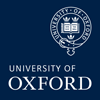Innovation Workshop 2016

For the past three years as part of our Arts Council England activity prigramme, here at Oxford University Museums we have run something called the Innovation Fund. This is an internal funding stream to which colleagues form across the museums can apply to support projects that are above and beyond their usual budget and remit. The purpose of the fund is to facilitate innovative and experimental ways of working by providing colleagues with seed funding and a mandate to test new ideas and experiment with new ways of working, helping us become more innovative, resilient and sustainable organisations. You can read more about the Innovation Fund and our previous innovation workshops here.
In order to get people thinking outside the box, and collaborating with colleagues from different parts of the organisation that they may not interact with regularly, each year we like to kick off the fund with an Innovation Workshop. This is a team building exercise, and we also aim to equip colleagues with tools to help them stress test their ideas and build more robust projects. For this year's workshop we worked with and from the Said Business School to deliver the workshop. We work with Pegram and Dani to deliver part of our residential leadership programme, Oxford Cultural Leaders, and they used some of the tools and theme from their session on that programme to frame the day.
Pegram and Dani led the group through a series of activities that encouraged them to identify common issues and opportunities across the museums that might be potential areas of activity. Everyone then split themselves into groups to focus on areas of particular interest to them and develop project proposals. Pegram and Dani encouraged the group to focus on the problem they are trying to solve rather than become 'married' to their solutions, and to be focused on what parts of a project are essential, and what are nice to have, but can change if they do not appear, after stress testing, to be the best solution.
Dani shared several examples from the commercial and not-for-profit sectors to help keep the group focused on solving a problem. One example was Clay Christensen's work with a fast food chain around their milkshakes. The chain had decided that they wanted to increase sales of their shakes, and did significant work with the demographic they had identified as shake drinkers and asked them a lot about the characteristics of the shakes (thickness, flavour, size, etc.) and consequently made lots of changes, none of which had a significant impact of sales. Working with Clay Christensen's team, a new approach was taken as they tried to identify what 'problem' customers had that the milkshake was helping them to 'solve'. That research revealed that a 40% of shakes were sold in the morning during the breakfast rush, by commuters on the go. It turns out the problem that they were trying to solve was not a craving for fruity, thick drinks, but for a interesting, filling things to have to make their morning commute more interesting, that was easy to eat while on the move and help them last until lunch. The store therefore made changes such as milkshake loyalty cards (like for coffee), make morning purchases fast, etc., and were significantly more successful in upping sales. Read more about this case study here or check out the video below.
At the end of the day the groups pitched their ideas to a panel of dragons comprised of the directors of the museums, who gave each group constructive feedback to improve their project ideas and make them viable projects to submit to the Innovation Fund in a few weeks. We work on Chatham House rules so I can't share any of the great ideas pitched on the day here, but the deadline for funding applications is in mid-March, and following the workshop, I am very much looking forward to some great proposals.
Useful links
- About the Partnership
- Our Museums
- Upcoming events
- Job Opportunities
- Oxford Cultural Leaders
- Read the blog
Sign up for our newsletter
Keep in touch
Follow us on Twitter
Email us
Phone

